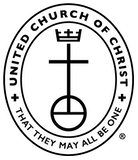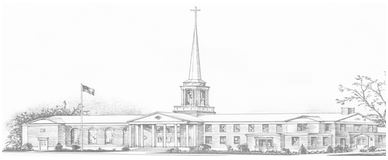MESSAGE – RENDER UNTO CAESAR? – Sunday October 18, 2020
TWENTIETH SUNDAY AFTER PENTECOST
I call upon you, for you will answer me, O God;
incline your ear to me, hear my words.
Keep me as the apple of the eye;
guard me in the shadow of your wings.
Psalm 17:6, 8
SCRIPTURE READING Matthew 22:15-22
People are amazing in their ingenuity. One of the things I vividly remember about visiting my parents in Japan is going to see the Museum in Oiso dedicated to the Kakure Kirishitan, the Hidden Christians.
Christianity had arrived in Japan just before the period of turmoil known as the Warring States Period. The Jesuit Francis Xavier landed in 1549 and began the first missionary activities.
Some of the regional lords converted, sheltering the missionaries, allowing their work, letting their people be baptized, (and as one historian has noted, thereby procuring great profits from trade with Europe.)
As the powerful warlord, Toyotomi Hideyoshi, extended his control, he was concerned about the potential of these alliances with European powers to stand in his way, and so, banned Christianity in the territories he controlled.
In 1597 he executed 20 Japanese Christians and 6 missionaries at Nagasaki for defying his orders. And the Edo Shogunate which followed ordered the destruction of churches and banned the propagation of the faith.
This situation remained in effect until the 1850’s when the Meiji regime opened the country to foreign trade, and Protestant missionaries began to arrive.
To everyone’s surprise, Hidden Christians who had endured almost 300 years of repression came out into the open. How did they survive, and pass on the faith?
In the museum at Oiso, there are statues of Buddha, with secret openings in the back containing a cross and statues of Kanon, the goddess of mercy, holding a child, and to those in the know, representing the Virgin Mary and baby Jesus. And one of the most fascinating artifacts, a wooden plaque engraved with the likeness of Jesus, which the overlords would command their subjects to trample upon.
Some refused to desecrate a holy icon, and were imprisoned and tortured until they renounced their faith or died. Others had no qualms about trampling on what they saw as a meaningless piece of wood.
Sort of like Christians in the days of Imperial Rome, some of whom rushed to public martyrdom as a witness to their faith, and others, who argued that if it was inevitable, martyrdom was your duty, but that it was better, if possible, to keep a low profile and go about your business of living by the law of love for God and your neighbor.
And those who chose those two paths were often quite vocal in their disagreement.
Sort of like in today’s scripture passage, where we see so very clearly that politics makes for strange bedfellows, and our ulterior motives sometimes overshadow our ethics.
The Pharisees and the Herodians had about as much love for each other as the Democrats and Republican do these days.
The one thing they had in common was their frustration with Jesus, who was rocking everybody’s boat. Going around proclaiming a kingdom of God that was at hand, and within you, and had not one thing to do with political power.
Treating women, and outcasts, the disenfranchised, the nobodies, and “sinners” (oh my) with respect and insisting that they were the apple of God’s eye.
That phrase gets used, by the way, in a verse from Psalm 17 at the heading of today’s bulletin. The “apple of one’s eye”. A more literal and modern translation would be the pupil of the eye, something that one would go to great lengths to protect, vision being as important as it is to us.
We have verse 6, I will call upon you for you will answer me… and verse 8, why will God answer, because God looks to guard us as one would protect one’s vision, as a mother bird sheltering her chicks under her wings.
But to whom does God show that marvelous love, as verse 7 puts it? To those who seek refuge from their adversaries.
But the important point here, and in so many other places in scripture, and throughout Jesus ministry is that we are talking about those who are picked upon and put upon and bullied by those with power.
When we become the ones with power, the bullies, then we become the adversaries God will stand against.
And so it is, with those who are looking to trap Jesus in this gospel story. They thought, “Aha! We’ve got him.” If he comes out in favor of paying taxes to the enemy, everybody will be mad at him, because who likes to pay taxes.
More than that, we are talking about taxes to Rome, which from the standpoint of those in first century Judea and Galilee would be about as popular as telling you and I we ought to be paying taxes to support Russia or China.
But if he says, no, don’t pay, then they can turn him in to the authorities and be rid of him.
And so we have the business with the coin. Whose face and whose inscription?
As unpopular as Caesar might have been, (oh, except in the case of those who were profiting handsomely from the special favors Caesar bestowed upon his friends) there was some benefit from having good roads and the protection afforded by Rome’s power as one traveled, and the ability to conduct commerce on a scale never before seen.
The question as always in human society was who got the most benefit and who paid the greatest toll.
And Jesus, and the early church, were, as I said before, solidly on the side of, in solidarity with those at the bottom.
And so it was, for over three hundred years.
The early Christians were like those kakure kirishitan, constantly in danger on account of the jealousy of their neighbors and the lust for total control by those in power.
Meeting in homes and catacombs, exchanging secret greetings and communicating in code, dedicated to loving God and their neighbor, with a preference for the poor (to use the language of 20th century liberation theology) ministering to the lost and the last and the left out and the least of these.
But in spite of that, or maybe because of it, the movement grew from a handful to a crowd to an unstoppable majority.
And as the book of Acts puts it, turned the world upside down.
But then the power that came with that took its toll, and factions of Christians literally fought with each other in the streets about who was more right. And eventually the persecuted became the persecutors.
So where are we today?
There are indeed places in the world where Christians are still persecuted and oppressed. But it seems to me that most of the noise about poor me, I am picked on and oppressed, in America today seems to come from those who have their hands on the levers of power and would seemingly do anything to hold on to it. And loudly proclaim that God is on their side.
But whose side is God on?
I think God is on my side, when I am beaten down and taken advantage of and discriminated against. But when I am the one taking advantage of my advantages to use that against you, then I suspect God sees it a little differently.
If God is for us, as that famous verse from Romans 8 puts it, who can be against us?
But the real question, I think, is not “is God on my side?”
It is, “Am I on God’s side?”
The side of truth, and justice, and love, and compassion, and grace. That, my friends, is what we truly need to work on.
And I know it is complicated, and it’s a journey and a process. A destination we never finally arrive at this side of the pearly gates.
But it’s also pretty simple, as I tell myself, and you, again and again and again, and you’ll be hearing it until I get it right, which probably means as long as God gives me breath:
Do justice, love kindness,
and walk humbly with your God.
In the name of God,
our Creator, Redeemer and Sustainer.
Amen.
Photo by Ganda Lukman on Unsplash


